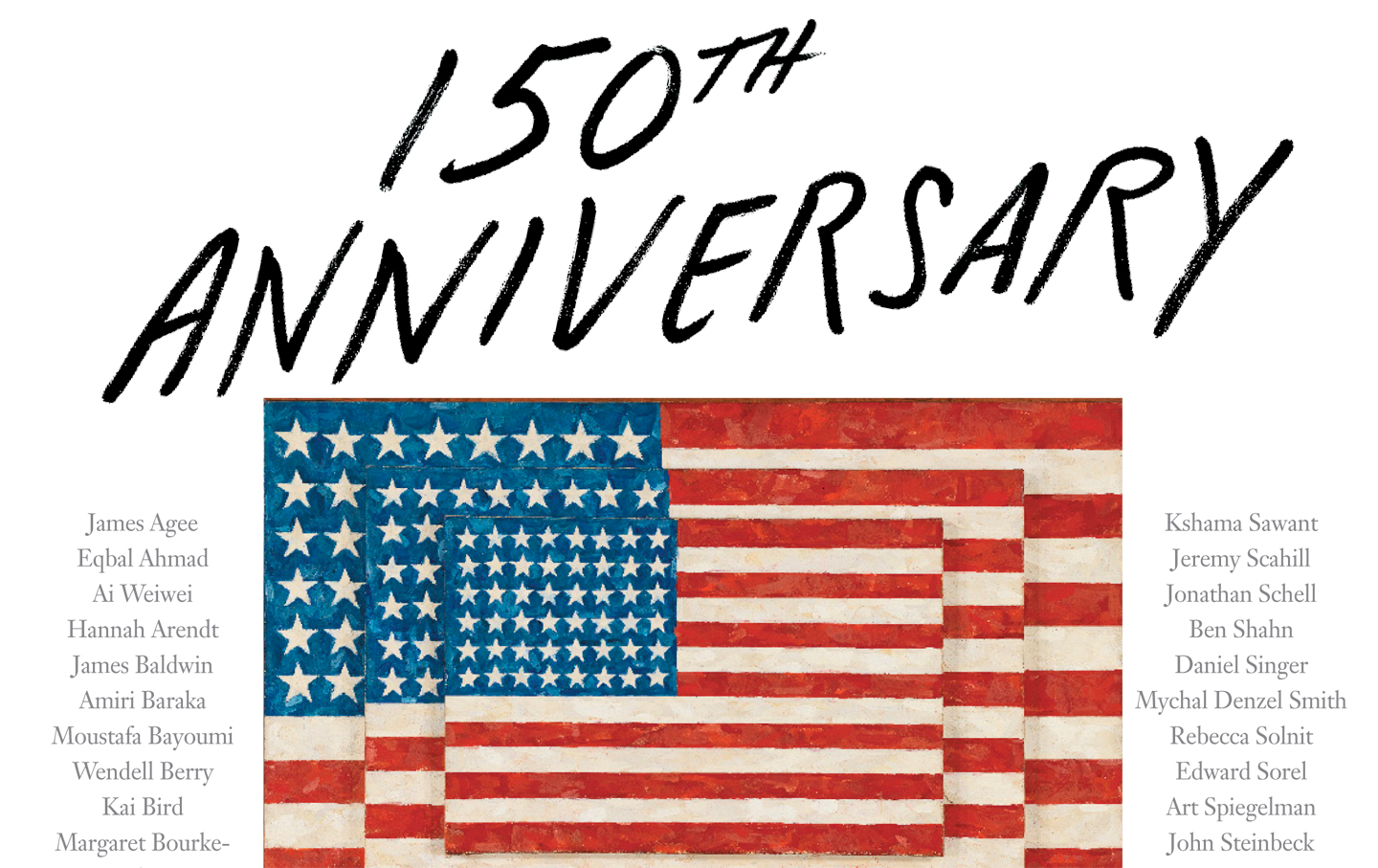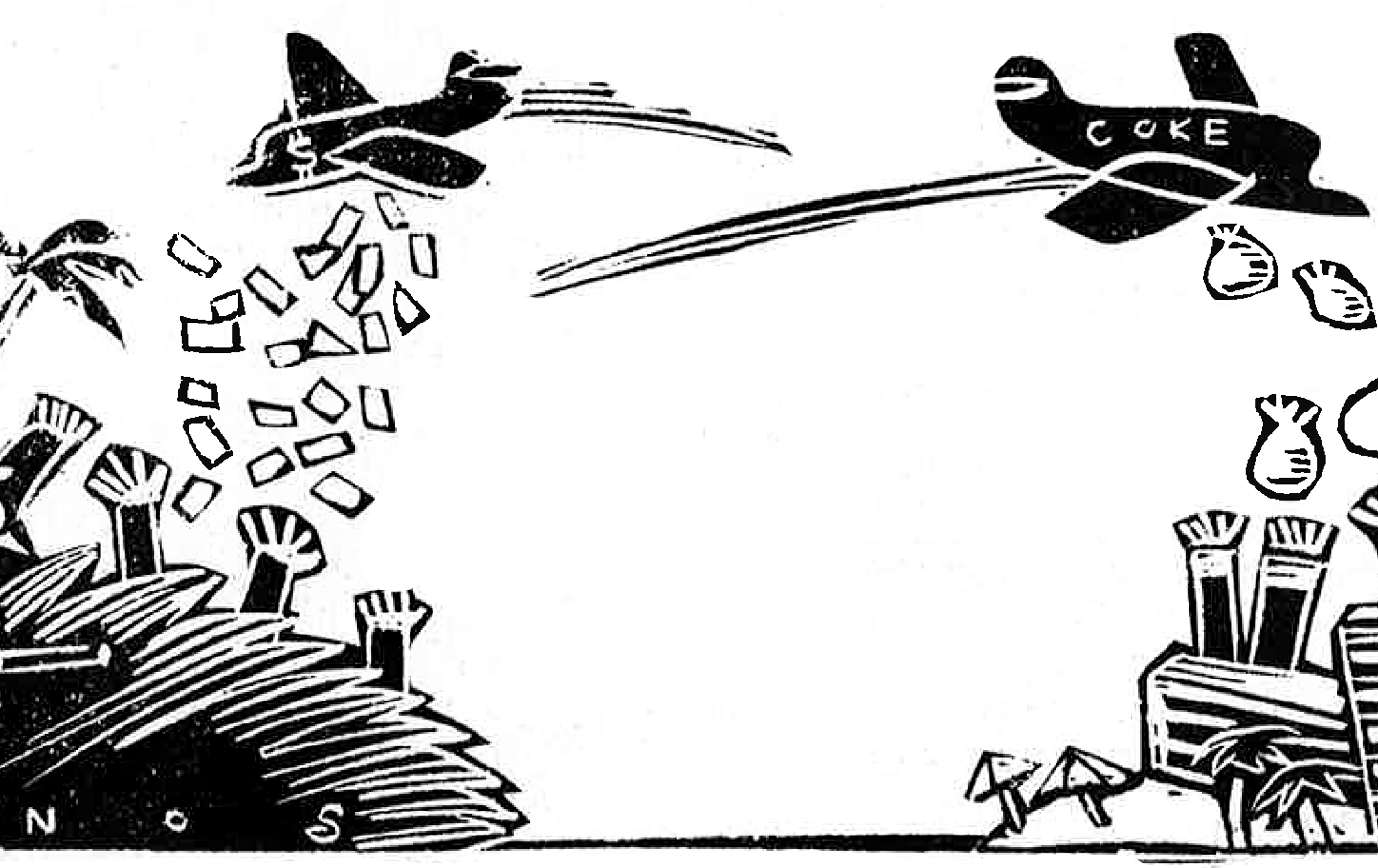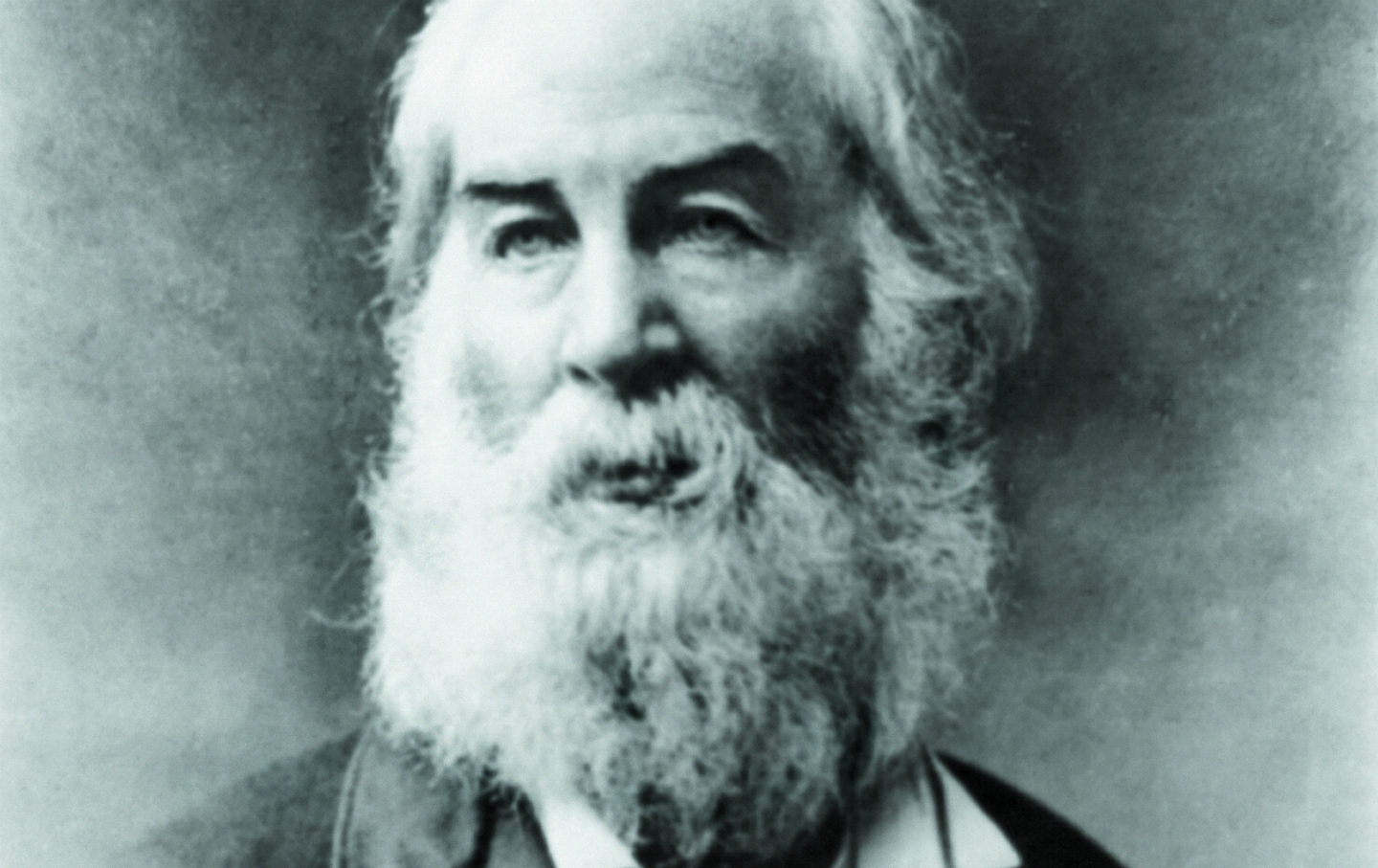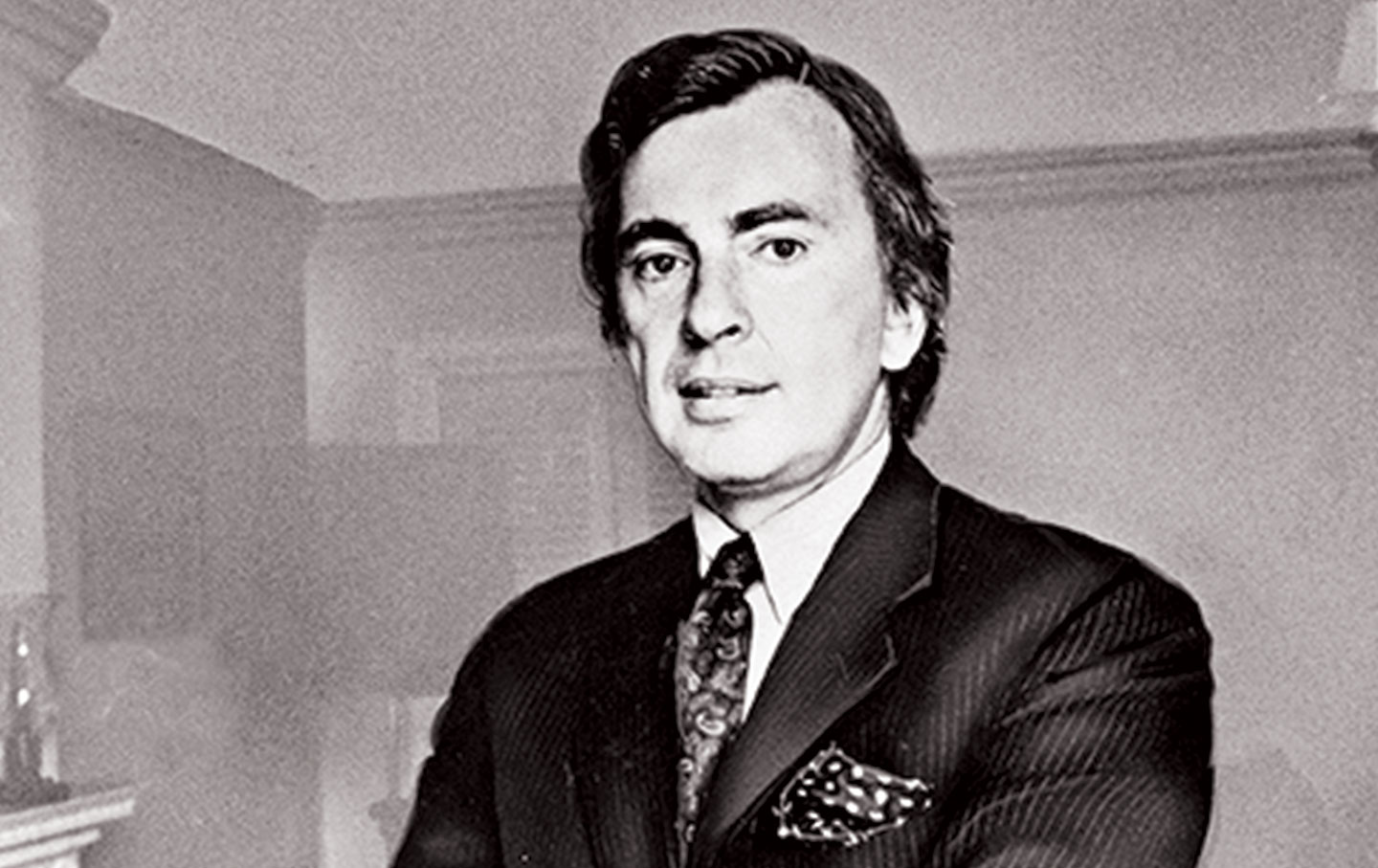
March 28, 1979: Nuclear Meltdown at Three Mile Island March 28, 1979: Nuclear Meltdown at Three Mile Island
It should have been clear that one self-serving segment of our society was pushing the rest of us into the arms of a technology that could not tolerate, nor contain, a major accide...
Mar 28, 2015 / The Almanac / Richard Kreitner and The Almanac

What Are ‘Nation’ Interns Reading the Week of 3/27/15? What Are ‘Nation’ Interns Reading the Week of 3/27/15?
What Are ‘Nation’ Interns Reading the Week of 3/27/15?
Mar 27, 2015 / Books & the Arts / StudentNation

Inequality and Broken Windows Inequality and Broken Windows
Eric responds to his critics and reviews the best shows of the week in today's Altercation.
Mar 25, 2015 / Blog / Eric Alterman

From Lenin to Lego From Lenin to Lego
Snowpiercer mocks what The Lego Movie cheers—a happy world of compulsory production.
Mar 24, 2015 / Books & the Arts / Joshua Clover

150th Anniversary Special Issue 150th Anniversary Special Issue
The year 2015 marks The Nation’s 150th anniversary (see here for a schedule of live events). This week, to celebrate the occasion, we’re publishing a very special anniversary issue, one of the longest in the magazine’s long history. This issue, which I co-edited with D.D. Guttenplan, our London correspondent, weaves together voices from The Nation’s rich history with contributors writing about the current cultural and political moment. In a rich series archival excerpts, we reprint some of the best that was thought and said in our pages—much of it inspiring and eerily prescient, some of it shocking. We have also included a few selections that turned out to be less than prophetic. Interspersed with the archival excerpts are three sections of new material. In the first, “The Nation and the Nation,” writers explore the magazine’s outsized influence on everything from poetry to feminism, radicalism to right-wing conservatism, Cuba to coverage of the arts. In “Fierce Urgencies,” contributors consider topics like the politics of fear, from anticommunism in the 1950s to Islamophobia today, and the relationship of the left to power—in movements, in electoral politics and in government. Finally, in “Radical Futures,” writers and activists map out new strategies for radicals, progressives and liberals seeking to expand the terms of our public discussion and look beyond the present moment. Change is inevitable, but the one constant in The Nation’s history has been faith—not in political parties or policies, but in what can happen when you tell people the truth. It is this notion that has sustained The Nation since its founding: that and the idea that there are always alternatives—in history, in politics, in life—that would make our country and the world a more humane, just and secure place. Our very first issue described “the conflict of the ages, the great strife between the few and the many, between privilege and equality, between law and power, between opinion and the sword.” This anniversary issue is a record of the last 150 years of that conflict—and as long as The Nation is around, that fight will go on. With your help, we’ll be fighting for another 150 years and beyond! —Katrina vanden Heuvel, Editor and Publisher Download a PDF of the full special issue. 150 Years of Telling the Truth, by Katrina vanden Heuvel The Founding Mission Statement of America’s Oldest Weekly Magazine A Message From President Barack Obama The Nation and the Nation: Radicals, rebels, poets, pioneers, feminists, fantasists and other voices from our hidden history. Fierce Urgencies: From the way we were then to the way we live now. Radical Futures: Harbingers of change, peeks over the horizon, maps of Utopia—and other strategies for keeping hope alive. Toward a Third Reconstruction: A Conversation with Eric Foner, Darryl Pinckney, Mychal Denzel Smith, Isabel Wilkerson and Patricia J. Williams. Why We Can’t Wait: Visions for a radical future, from StudentNation contributors and former interns. Excerpts from The Nation’s Archives, 1865–2015 The Nation: A Biography, Part I, Part II, Part III Columns A Wake-Up Call for US Liberals, by Eric Alterman Irresponsible Power, by Gary Younge Letters to the Editor Testimonials to The Nation Poems From the Archive Puzzle No. 3358 * * * The Nation and the Nation Radicals, rebels, poets, pioneers, feminists, fantasists and other voices from our hidden history. Eric Foner: Freedom’s Song Illustrated by Steve Brodner JoAnn Wypijewski: Night Thoughts Rick Perlstein: Going All the Way Illustrated by Eugène Mihaesco Elizabeth Pochoda: How to Lose Friends and Influence People Ange Mlinko: The Dream Life of Desire Betsy Reed and Katha Pollitt: Spreading Feminism Far and Wide Frances Jetter: Works on Paper Peter Kornbluh: Cuba Libre David Corn: How I Got That Story Calvin Trillin: Cruising to Port Maria Margaronis: Radical Hope Ariel Dorfman: Separated at Birth Illustrated by Yuko Shimizu * * * Fierce Urgencies From the way we were then to the way we live now. Marilynne Robinson: A Sense of Obligation Victor Navasky: The Roads Not Taken Victor Juhasz: His Master’s Voice Walden Bello: The Left in Power Kai Bird: Revisiting ‘Myths About the Middle East’: The Case for Disengagement Art Spiegelman: Drawing the Line Michael Tomasky: Lesser-Evilism We Can Believe In Robert L. Borosage: Occupy and Organize Michael Sorkin: Weird Bedfellows Helen Lewis: Game Not Over Tom Tomorrow: All the Right Enemies Moustafa Bayoumi: ‘Why Do They Hate Us?’ Michael Moore: Michael Moore for President * * * Radical Futures Harbingers of change, peeks over the horizon, maps of Utopia—and other strategies for keeping hope alive. Toni Morrison: No Place for Self-Pity, No Room for Fear Rebecca Solnit: Unpredictable Weather Illustrated by Eric Drooker Jack O’Dell: Beginning to See the Light Noam Chomsky: Killing the Commons Illustrated by Milton Glaser Stuart Klawans: Traces of Light Gene Seymour: Future Sounds Dave Zirin: A World of Sports Worth Fighting For E.L. Doctorow: Home Illustrated by Mirko Ilic Joel Rogers: Productive Democracy Kshama Sawant: Socialist Politics: The Heart of Rebuilding the Left Michael Massing: An Investigative Blueprint Illustrated by Marshall Arisman Michael Massing: Unburying the Lede David Cole: Privacy 2.0: Surveillance in the Digital Age John Nichols: Move to Amend Bhaskar Sunkara: A Red by Any Other Name Jon Wiener: It’s Time to End Tuition at Public Universities—and Abolish Student Debt Thomas Geoghegan: The Big Fix Amy Wilentz: The Future of a Failed State Mark Gevisser: Engendered * * * Excerpts from The Nation’s Archives, 1865–2015 Founded by abolitionists to finish the job of Emancipation, The Nation became a moribund defender of the status quo. But its firm anti-imperialism, and one crusading editor, brought it back to life. 1865–1875: When Corporations Became America’s Aristocracy Henry James: Mr. Walt Whitman Frederick Law Olmsted: Chicago in Distress 1875–1885: Custer’s Last Stand and the Power of Tammany Hall E.L. Godkin: The Sources of Communism 1885–1895: Anarchists Are Vagabonds and Ruffians and Threaten Everything We Most Value on Earth E.L. Godkin and Rochelle Gurstein: Clickbait Has Plagued Journalism for 125 Years The Editors: The New Football 1895–1905: When the American Empire Was Born Horace White and Elinor Langer: American Imperialism: This Is When It All Began 1905–1915: Henry James’s Obscurities Oswald Garrison Villard: What Would Lincoln Think of Race Relations on His 100th Birthday? Simeon Strunsky and Richard Kreitner: When the Constitution Becomes The Last Resort of Scoundrels From World War I to Vietnam, from the red scare to McCarthyism, The Nation stood firm for civil liberties and civil rights, even when that meant being banned—or standing alone. 1915–1925: Radicals in a Time of Hysteria Floyd Dell and Michelle Goldberg: Can Men and Women Be Friends? William MacDonald and Mayor Bill de Blasio: If We Repossessed Empty Homes, Homelessness Would Be Over 1925–1935: Is Art Possible in the United States? Langston Hughes and Touré: Loving Blackness in a Nation Ruled by White Supremacy Albert Einstein: Was Europe a Success? Emma Goldman and Vivian Gornick: When the World Became a Huge Penitentiary 1935–1945: The Establishment of a Warless World Must Be Our Goal John Dos Passos: Big Parade—1936 John Steinbeck: On the Violent Repression of the Fight for Migrant Workers’ Rights I.F. Stone: For the Jews—Life or Death? 1945–1955: We Face a Choice Between One World or None James Agee: The Salt of the Earth Hannah Arendt: French Existentialism Jean-Paul Sartre: Americans and Their Myths Bernard Fall and Frances FitzGerald: The Reporter Who Warned Us Not to Invade Vietnam 10 Years Before the Gulf of Tonkin Ray Bradbury: What Science Fiction Teaches Us About Reality 1955–1965: Down the Road of Folly W.E.B. Du Bois: I Won’t Vote Ralph Nader: The Safe Car You Can’t Buy Howard Zinn and Paula J. Giddings: When Respectability Was No Longer Respectable, and Virtue Required Acting Out, Not Leaning In Jessica Mitford: The Indignant Generation A forum for debate between radicals and liberals in an age of austerity, surveillance and endless war, The Nation has long had one foot inside the establishment and one outside it. 1965–1975: How To Tell The Rebels Have Won Wendell Berry and Wen Stephenson: The Gospel According to Wendell Berry Martin Luther King Jr.: The Last Steep Ascent Frances Fox Piven and Richard Cloward: The Weight of the Poor: A Strategy to End Poverty Hunter S. Thompson: The Motorcycle Gangs: Losers and Outsiders James Baldwin and Carrie Mae Weems : James Baldwin: A Report From Occupied Territory 1975–1985: Standing in Solidarity Against Jackbooted Oppressors William Appleman Williams and Greg Grandin: Is America Possible Without Empire? Gore Vidal: ‘Some’ Jews & ‘the’ Gays Barbara Ehrenreich: Can Women and Men Live Together Again? E.P. Thompson: East, West—Is There a Third Way? 1985–1995: The Radical Reformation of American Politics and Culture Christopher Hitchens: Terrorism and Its Discontents Alexander Cockburn: The Stars Were Their Alibi Alice Walker: What Can the White Man Say to the Black Woman? Edward Miliband: Maggie Stumbles Katha Pollitt: Are Women Morally Superior to Men? Tony Kushner: A Socialism of the Skin Adolph Reed Jr.: Adolph Reed Destroys ‘The Bell Curve’ 1995–2005: Our Enemies Cannot Defeat Us—Only We Can Edward Said: There Cannot Be Peace and Security Until the Cause of Palestinian Suffering Is Addressed Marshall Berman: What Does ‘The Communist Manifesto’ Have to Offer 150 Years After Its Publication? Mark Hertsgaard: A Global Green Deal 2005–2015: This All Seems Eerily Familiar * * * Poems From the Archives Robert Frost: The Bear Sylvia Plath: Two Views of a Cadaver Room Frank O’Hara: Present William Butler Yeats: Hound Voice W.H. Auden: The Fall of Rome Claude McKay: Home Song John Berryman: Dream Song Allen Ginsberg: Now and Forever Wallace Stevens: The Plain Sense of Things Adrienne Rich: Parting Anne Sexton: The Starry Night LeRoi Jones: Tight Rope Elizabeth Bishop: Varick Street Marianne Moore: The Mind Is an Enchanting Thing William Carlos Williams: The Injury Mahmoud Darwish: And We Love Life Magazine issue cover: art © Jasper Johns/Licensed by VAGA. New York, NY Jasper Johns (b. 1930). Three Flags, 1958. Encaustic on canvas, 30 5/8 x 45 1/2 x 4 5/8 in. (77 .8 x 115.6 x 11.7 cm). Whitney Museum of American Art, New York; purchased with funds from the Gilman Foundation Inc., the Lauder Foundation, A. Alfred Taubman, Laura Lee Whittier Woods, Howard Lipman and Ed Downe, in honor of the museum’s fiftieth anniversary 80.32 Digital lmage © Whitney Museum of American Art, NY
Mar 23, 2015 / 150th Anniversary / The Nation

What Would Lincoln Think of Race Relations on His 100th Birthday? What Would Lincoln Think of Race Relations on His 100th Birthday?
The Nation’s publisher writes about “the negro problem” during the very week he helped found the NAACP.
Mar 23, 2015 / Feature / Oswald Garrison Villard

How I Got That Story How I Got That Story
“Stay to the end…and read everything”: Reporting the Iran/Contra scandal taught me everything I needed to know about covering Washington.
Mar 23, 2015 / Feature / David Corn
Parting Parting
December 7, 1963 White morning flows into the mirror. Her eye, still old with sleep, meets itself like a sister. How they slept last night, the dream that caged them back to back, was nothing new. Last words, tears, most often come wrapped as the everyday familiar failure. Now, pulling the comb slowly through her loosened hair, she tries to find the parting; it must come out after all: hidden in all that tangle there is a way. This article is part of The Nation’s 150th Anniversary Special Issue. Download a free PDF of the issue, with articles by James Baldwin, Barbara Ehrenreich, Toni Morrison, Howard Zinn and many more, here. Over a half-century, Adrienne Rich (1929–2012) wrote twenty-two poems for The Nation and several reviews and essays, including a 2002 piece exploring the meaning of “antiwar.”
Mar 23, 2015 / Books & the Arts / Adrienne Rich

Walt Whitman Is An Insult To Art, Says 22-Year Old Henry James Walt Whitman Is An Insult To Art, Says 22-Year Old Henry James
Drum-Taps is the effort of an essentially prosaic mind to lift itself, by a prolonged muscular strain, into poetry.
Mar 23, 2015 / Books & the Arts / Henry James

When ‘Commentary’ Parroted ‘The Protocols of the Elders of Zion’ When ‘Commentary’ Parroted ‘The Protocols of the Elders of Zion’
Like it or not, Jews and homosexualists are in the same fragile boat, and one would have to be pretty obtuse not to see the common danger.
Mar 23, 2015 / Feature / Gore Vidal
